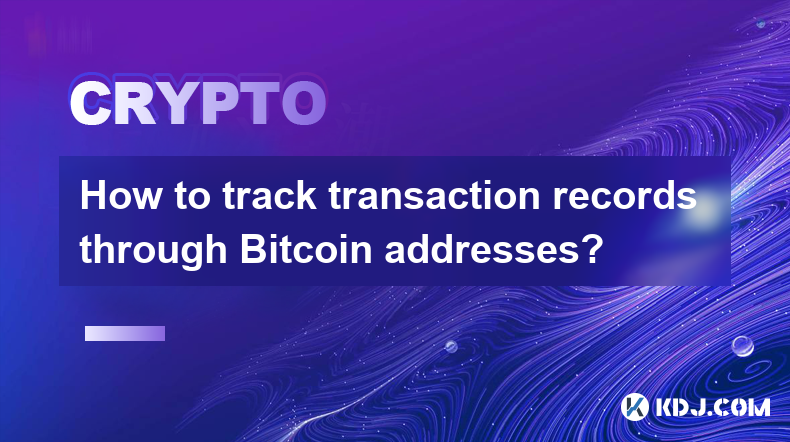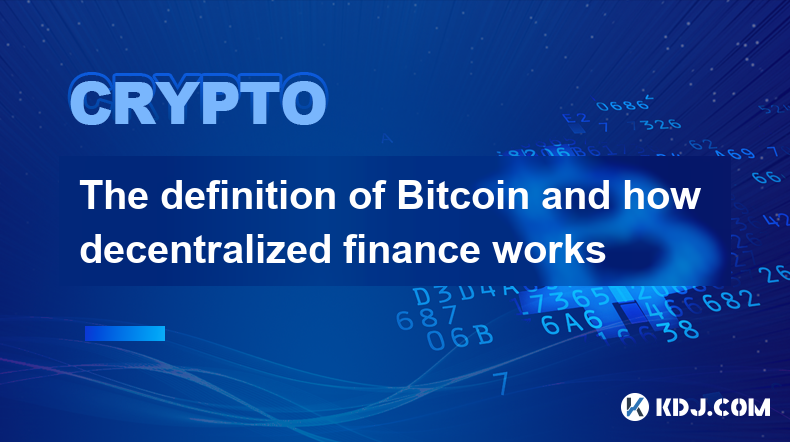-
 Bitcoin
Bitcoin $77,741.2042
-2.10% -
 Ethereum
Ethereum $1,483.7084
-5.24% -
 Tether USDt
Tether USDt $0.9996
0.01% -
 XRP
XRP $1.8283
-1.85% -
 BNB
BNB $556.0486
-0.39% -
 USDC
USDC $1.0002
0.02% -
 Solana
Solana $107.2186
-1.21% -
 Dogecoin
Dogecoin $0.1472
-1.84% -
 TRON
TRON $0.2292
-2.15% -
 Cardano
Cardano $0.5762
-1.14% -
 UNUS SED LEO
UNUS SED LEO $9.1349
1.86% -
 Toncoin
Toncoin $3.0824
-0.54% -
 Chainlink
Chainlink $11.4627
-1.15% -
 Avalanche
Avalanche $16.8086
-1.40% -
 Stellar
Stellar $0.2234
-1.98% -
 Hedera
Hedera $0.1549
-2.35% -
 Shiba Inu
Shiba Inu $0.0...01103
-2.35% -
 Sui
Sui $1.9882
-1.59% -
 MANTRA
MANTRA $6.2625
-0.24% -
 Bitcoin Cash
Bitcoin Cash $275.4681
-0.58% -
 Polkadot
Polkadot $3.4797
-3.23% -
 Dai
Dai $1.0003
0.02% -
 Litecoin
Litecoin $70.7217
-0.76% -
 Ethena USDe
Ethena USDe $0.9986
-0.03% -
 Bitget Token
Bitget Token $4.0982
-2.40% -
 Hyperliquid
Hyperliquid $12.3725
3.36% -
 Pi
Pi $0.5663
-2.21% -
 Monero
Monero $195.2899
-5.54% -
 OKB
OKB $51.4452
-1.06% -
 Uniswap
Uniswap $4.8766
-5.24%
How to track transaction records through Bitcoin addresses?
Bitcoin transactions can be tracked using blockchain explorers like Blockchain.com by inputting an address to view its transaction history and flow of Bitcoin over time.
Mar 27, 2025 at 02:36 pm

Understanding Bitcoin Addresses and Transaction Tracking
Bitcoin transactions are recorded on the public blockchain, a distributed ledger accessible to anyone. Each transaction involves a sender's Bitcoin address, a receiver's Bitcoin address, and the amount of Bitcoin transferred. Tracking these transactions relies on understanding how Bitcoin addresses function and utilizing blockchain explorers. A Bitcoin address is essentially a cryptographic hash, a unique identifier that doesn't reveal the identity of the owner. However, by analyzing the blockchain data associated with a specific address, we can reconstruct its transaction history.
Utilizing Blockchain Explorers to Track Transactions
Blockchain explorers are websites that provide a user-friendly interface to access and search the Bitcoin blockchain. Popular options include Blockchain.com, BlockCypher, and others. These explorers allow you to input a Bitcoin address and view its associated transactions. The information displayed typically includes the transaction ID (TXID), timestamp, the amounts sent and received, and the addresses involved in the transaction. This allows you to trace the movement of Bitcoin associated with a specific address over time.
Step-by-Step Guide to Tracking Bitcoin Transactions
To track Bitcoin transactions using a blockchain explorer, follow these steps:
- Find a reputable blockchain explorer: Choose a well-known and trusted explorer like Blockchain.com or BlockCypher. Ensure it's secure to protect your privacy.
- Input the Bitcoin address: Paste the Bitcoin address you want to track into the search bar provided on the explorer's website.
- Review the transaction history: The explorer will display a list of all transactions associated with that address, showing incoming and outgoing Bitcoin transfers.
- Analyze individual transactions: Click on each transaction to see detailed information, including the amounts, timestamps, and involved addresses.
- Follow the flow of Bitcoin: By examining subsequent transactions, you can trace the Bitcoin's movement through the network. This may involve multiple addresses.
Remember, the information provided by blockchain explorers is public and transparent. Anyone can access this data.
Privacy Considerations and Limitations
While blockchain explorers offer valuable insights into Bitcoin transaction history, it's important to understand their limitations. A Bitcoin address itself doesn't reveal the user's identity. However, through techniques like analyzing transaction patterns and linking addresses to known entities, it might be possible to infer some information about the owner. Using a mixing service or a privacy-focused coin can help enhance your privacy. Also, remember that not all transactions are immediately visible on the blockchain; there's a confirmation time involved.
Advanced Techniques and Tools
For more in-depth analysis, advanced tools and techniques exist. These might include using specialized software to visualize transaction graphs, identifying clusters of addresses, and using data analysis to uncover potential relationships between addresses. However, these methods often require technical expertise and may involve complex data processing. Always use these tools responsibly and ethically. Respect the privacy of others and avoid engaging in activities that violate the law.
Interpreting Transaction Data
Understanding the data presented by blockchain explorers is crucial for accurate interpretation. The displayed amounts represent the quantity of Bitcoin transferred, usually in Satoshis (the smallest unit of Bitcoin). The timestamps indicate when the transaction was recorded on the blockchain. Note that the confirmation time varies, and a transaction is not considered final until it has received a sufficient number of confirmations. Always verify the information you find with multiple sources to ensure accuracy.
The Role of Transaction IDs (TXIDs)
Each Bitcoin transaction is assigned a unique Transaction ID (TXID). This alphanumeric string acts as a fingerprint for that specific transaction. TXIDs are essential for tracking individual transactions within the broader context of an address's transaction history. Using a TXID, you can directly access the details of a particular transaction on any blockchain explorer. This allows for precise tracking of Bitcoin movements within a complex network of transactions.
Frequently Asked Questions
Q: Can I track all Bitcoin transactions using a single address?
A: No, a Bitcoin address only reveals transactions directly involving that specific address. It won't show transactions involving other addresses owned by the same individual.
Q: Is tracking Bitcoin transactions completely anonymous?
A: No, while Bitcoin addresses don't directly reveal identities, sophisticated analysis can sometimes link addresses to individuals or entities. Privacy tools can mitigate this risk.
Q: How long does it take for a Bitcoin transaction to appear on a blockchain explorer?
A: The time varies, depending on the network congestion. Generally, it takes a few minutes to several hours for a transaction to be fully confirmed and visible on the blockchain.
Q: Are all blockchain explorers equally reliable?
A: No, some explorers may be more reliable than others. Stick to well-established and reputable explorers to ensure data accuracy and security.
Q: Can I track transactions on other cryptocurrencies besides Bitcoin?
A: Yes, each cryptocurrency has its own blockchain and explorers, allowing you to track transactions using similar methods.
Q: What if the Bitcoin address I'm tracking is associated with illegal activity?
A: Tracking transactions associated with illegal activity is ethically problematic and may have legal ramifications. Always adhere to local laws and regulations.
Q: Can I use blockchain explorers to recover lost Bitcoin?
A: You can use blockchain explorers to see if the lost Bitcoin has been moved from your address. However, recovering the Bitcoin itself requires access to the private keys associated with the address.
Q: Are there any risks associated with using blockchain explorers?
A: The primary risk is the potential exposure of your own Bitcoin addresses if you use them carelessly. Always use reputable explorers and be mindful of the information you share.
Q: Can I use a Bitcoin address to identify the owner's real-world identity?
A: Not directly. Bitcoin addresses are pseudonymous. However, sophisticated analysis might be able to link an address to an individual or entity through other means. This is often difficult and requires extensive investigation.
Disclaimer:info@kdj.com
The information provided is not trading advice. kdj.com does not assume any responsibility for any investments made based on the information provided in this article. Cryptocurrencies are highly volatile and it is highly recommended that you invest with caution after thorough research!
If you believe that the content used on this website infringes your copyright, please contact us immediately (info@kdj.com) and we will delete it promptly.
- BTCC Expands Its Spot Market Offering With the Listing of 10 Trending Altcoin Pairs
- 2025-04-09 15:00:13
- Bitso-backed Juno Labs Enters the Stablecoin Market with MXNB, a Mexican Peso-pegged Token
- 2025-04-09 15:00:13
- Paribu is launching during Paris Blockchain Week 2025 with international ambitions
- 2025-04-09 14:55:13
- GameStop's Bitcoin (BTC) investment decision poked fun at by Jason Calacanis
- 2025-04-09 14:55:13
- Solana (SOL) Price Plunges Over 6% to Trade at $103.63
- 2025-04-09 14:50:13
- The results of the Trump tariffs are coming in already and most of the market assets are taking a nosedive
- 2025-04-09 14:50:13
Related knowledge

What is Bitcoin halving? Analysis of the impact on prices
Apr 09,2025 at 01:14pm
Bitcoin halving is a pivotal event in the cryptocurrency world that occurs approximately every four years, or every 210,000 blocks. The event is designed to reduce the rate at which new bitcoins are generated, thereby controlling inflation and increasing scarcity over time. During a halving, the reward that miners receive for successfully adding a block...

What to do if Bitcoin is stolen? Security protection and recovery possibilities
Apr 09,2025 at 03:42pm
If your Bitcoin is stolen, it can be a distressing experience, but there are steps you can take to protect your remaining assets and attempt to recover your lost funds. This article will guide you through the process of securing your Bitcoin and exploring recovery possibilities. Immediate Actions After Bitcoin TheftThe moment you realize your Bitcoin ha...

The role of Bitcoin wallets: public keys, private keys and security analysis
Apr 09,2025 at 03:00am
Bitcoin wallets play a crucial role in the world of cryptocurrency, serving as the gateway to securely store, send, and receive Bitcoin. Understanding the intricacies of Bitcoin wallets, particularly the concepts of public keys, private keys, and security analysis, is essential for anyone looking to navigate the cryptocurrency landscape safely and effec...

The definition of Bitcoin and how decentralized finance works
Apr 09,2025 at 03:29pm
Bitcoin, the world's first decentralized cryptocurrency, was created in 2009 by an anonymous person or group using the pseudonym Satoshi Nakamoto. Bitcoin operates on a peer-to-peer network, allowing users to send and receive payments without the need for intermediaries like banks. The underlying technology that powers Bitcoin is called blockchain, a di...

What is Bitcoin? An in-depth analysis of its operating mechanism
Apr 09,2025 at 02:42am
Bitcoin is a decentralized digital currency that was created in 2009 by an unknown person or group using the name Satoshi Nakamoto. It operates on a peer-to-peer network, allowing users to send and receive payments without the need for intermediaries such as banks. In this in-depth analysis, we will explore the operating mechanism of Bitcoin, including ...

BTC's top ten global trading platforms
Apr 03,2025 at 10:42am
Top 10 Bitcoin trading platforms in the world1. OKX (Ou Yi):✅ Advantages: Have the world's largest compliance license to ensure fund security Provides the best contract trading depth and supports U- and coin-price trading Low transaction fees, Maker can enjoy negative rates (refund transaction fees) Applicable groups: short-term trading experts, con...

What is Bitcoin halving? Analysis of the impact on prices
Apr 09,2025 at 01:14pm
Bitcoin halving is a pivotal event in the cryptocurrency world that occurs approximately every four years, or every 210,000 blocks. The event is designed to reduce the rate at which new bitcoins are generated, thereby controlling inflation and increasing scarcity over time. During a halving, the reward that miners receive for successfully adding a block...

What to do if Bitcoin is stolen? Security protection and recovery possibilities
Apr 09,2025 at 03:42pm
If your Bitcoin is stolen, it can be a distressing experience, but there are steps you can take to protect your remaining assets and attempt to recover your lost funds. This article will guide you through the process of securing your Bitcoin and exploring recovery possibilities. Immediate Actions After Bitcoin TheftThe moment you realize your Bitcoin ha...

The role of Bitcoin wallets: public keys, private keys and security analysis
Apr 09,2025 at 03:00am
Bitcoin wallets play a crucial role in the world of cryptocurrency, serving as the gateway to securely store, send, and receive Bitcoin. Understanding the intricacies of Bitcoin wallets, particularly the concepts of public keys, private keys, and security analysis, is essential for anyone looking to navigate the cryptocurrency landscape safely and effec...

The definition of Bitcoin and how decentralized finance works
Apr 09,2025 at 03:29pm
Bitcoin, the world's first decentralized cryptocurrency, was created in 2009 by an anonymous person or group using the pseudonym Satoshi Nakamoto. Bitcoin operates on a peer-to-peer network, allowing users to send and receive payments without the need for intermediaries like banks. The underlying technology that powers Bitcoin is called blockchain, a di...

What is Bitcoin? An in-depth analysis of its operating mechanism
Apr 09,2025 at 02:42am
Bitcoin is a decentralized digital currency that was created in 2009 by an unknown person or group using the name Satoshi Nakamoto. It operates on a peer-to-peer network, allowing users to send and receive payments without the need for intermediaries such as banks. In this in-depth analysis, we will explore the operating mechanism of Bitcoin, including ...

BTC's top ten global trading platforms
Apr 03,2025 at 10:42am
Top 10 Bitcoin trading platforms in the world1. OKX (Ou Yi):✅ Advantages: Have the world's largest compliance license to ensure fund security Provides the best contract trading depth and supports U- and coin-price trading Low transaction fees, Maker can enjoy negative rates (refund transaction fees) Applicable groups: short-term trading experts, con...
See all articles























































































